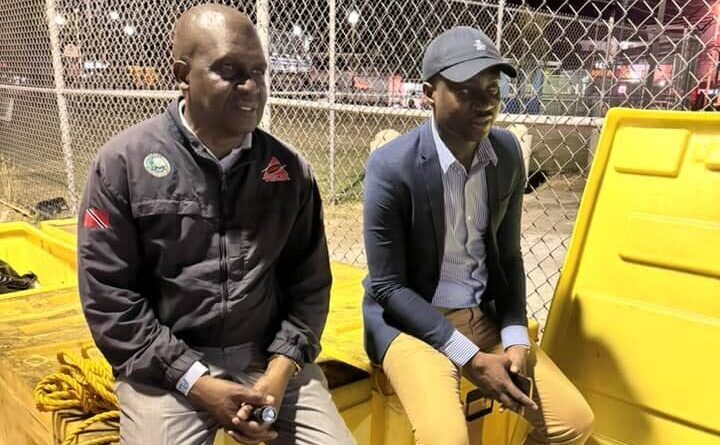Farley: Oil-spill clean-up could take six-eight months

THA Chief Secretary Farley Augustine says the oil spill currently affecting Tobago’s southwestern coast will take six-eight months to clean in the short term.
The spill came about as a result of an overturned barge – the Gulfstream – which began leaking an oil-like substance, since identified as bunker fuel, some 200 metres off the coast of the Cove Eco Industrial Park on February 7.
During the post-executive council media briefing on February 28 at the Shaw Park Cultural Complex, Augustine said response teams had reviewed past spills in Trinidad and Tobago to gauge how long the clean-up was likely to take.
He added the Brazilian company, Petrobras, which dealt with a similar incident in 2019, also shared its expertise on how the situation should be handled.
Augustine said, "A spill of this size will take six-eight months to be fully cleaned. That does not mean that it will take eight months before you could drive again in the areas that are locked off. But for it to be fully cleaned, we are looking at six-eight months in the short term."
He said the waste-management exercise could take about 18 months, and remediation efforts are projected to take two-three years.
"Two, three years from now you will still have people in Tobago looking to replant mangroves, repopulate some eco-systems. So we are in this for the long haul."
At the briefing, Augustine also said the THA has not spent a cent so far on containing and eradicating the spill.
"The THA has been 'trusting' from everybody so far. So we haven’t spent any money thus far."
He said when the crisis began, the Tobago Emergency Management Agency (TEMA), along with accounting and procurement personnel, went into “emergency drive.
"They have been liaising with all of these companies, engaging them in the space, and none of them have been paid to date. So I want you to see that all of the people operating, they are not working for free, necessarily, but they came out."
Augustine thanked the companies for taking on the onerous task without mobilisation fees or contracts.
He said given the nature of the emergency, the THA could not just wait for the legal department to draw up contracts or tender out jobs openly.
"So the director at TEMA, the chief administrator, the accounting and procurement officers – they just engaged you guys as service providers in the space, and they did so mostly based on recommendations we got from partners at the Ministry of Energy and at Heritage (Petroleum) so that we could get the work started and done."
The legal team is working out contractual arrangements to make part-payments, he said.
"We have not paid a single cent to anybody at this point. But we know that pretty soon we will have to start doing that. We have not expended any funds as yet. But that is the nature of how those emergencies work."


Comments
"Farley: Oil-spill clean-up could take six-eight months"